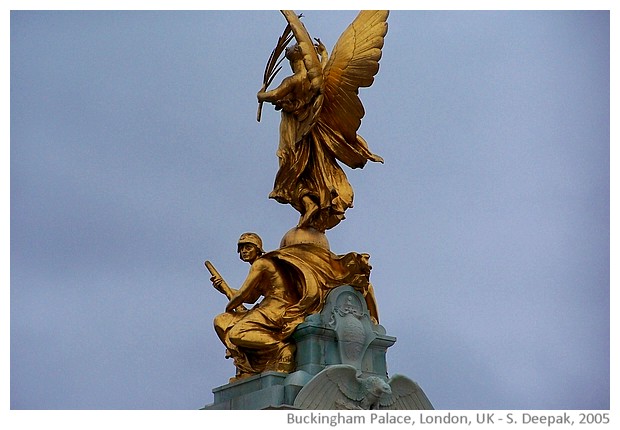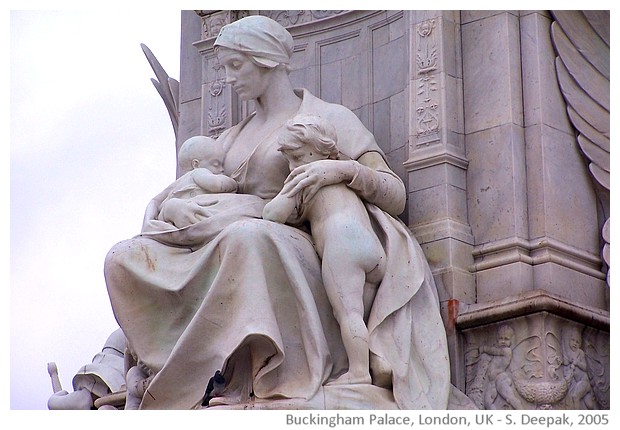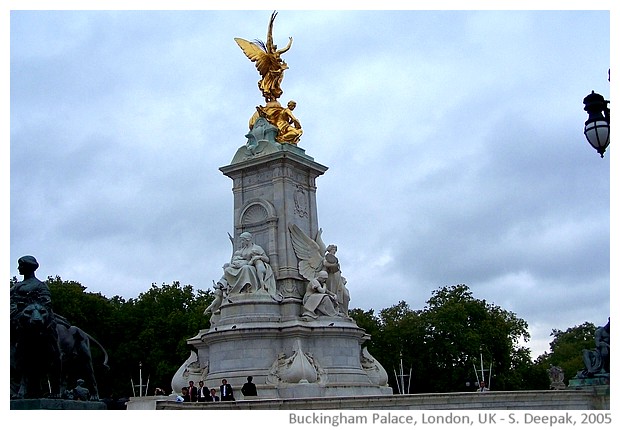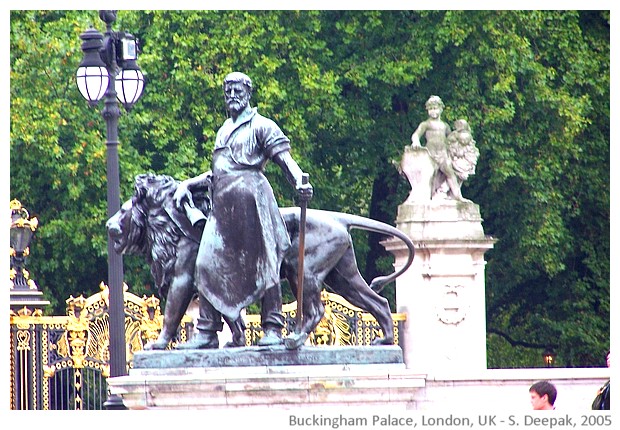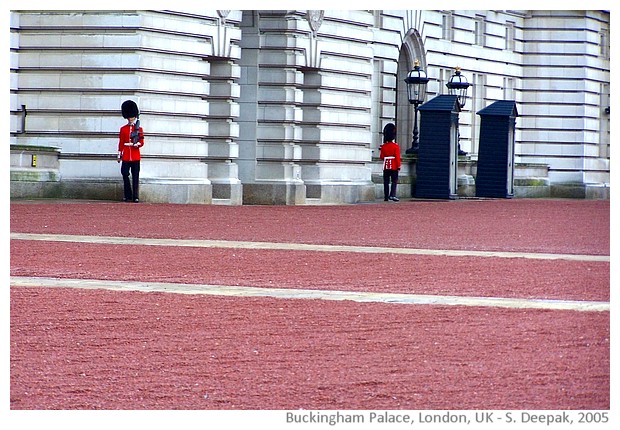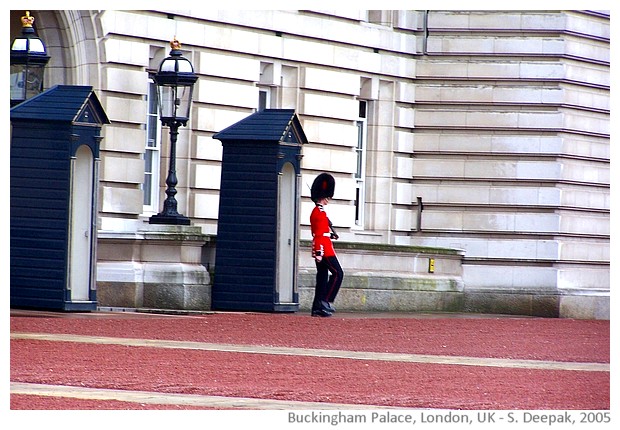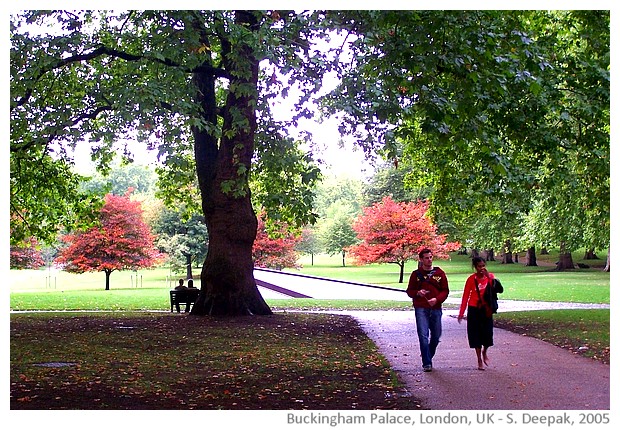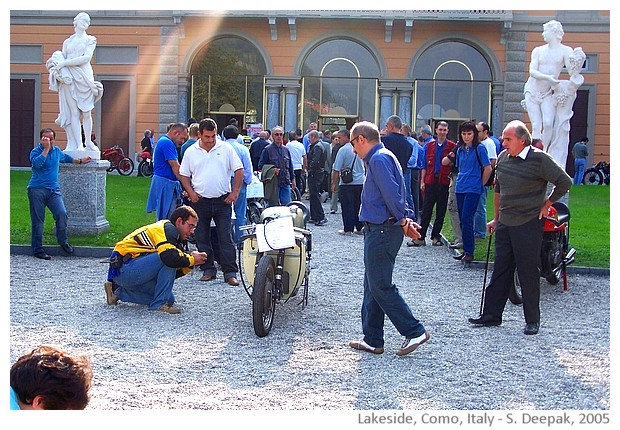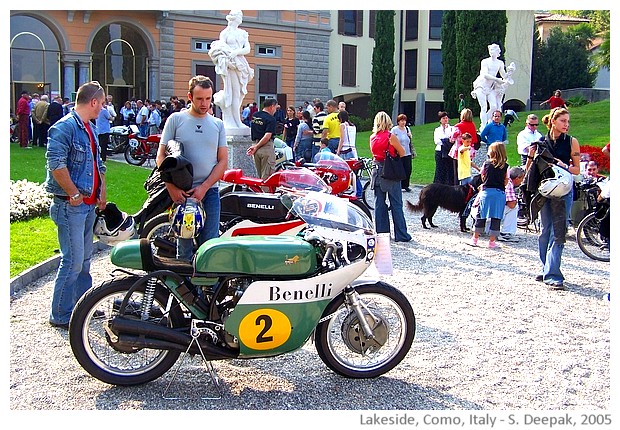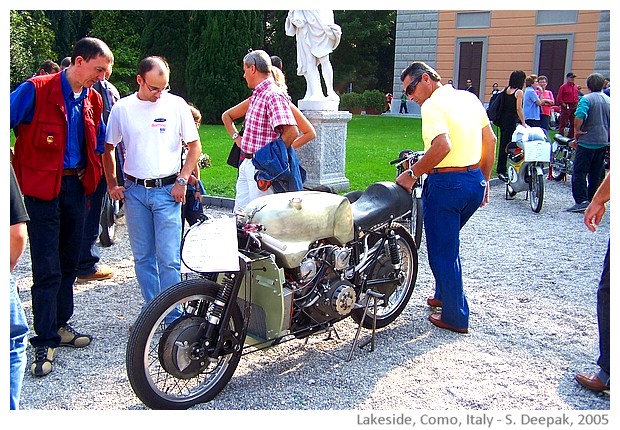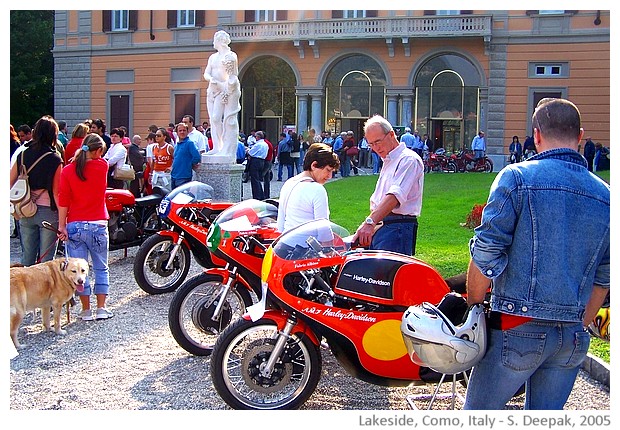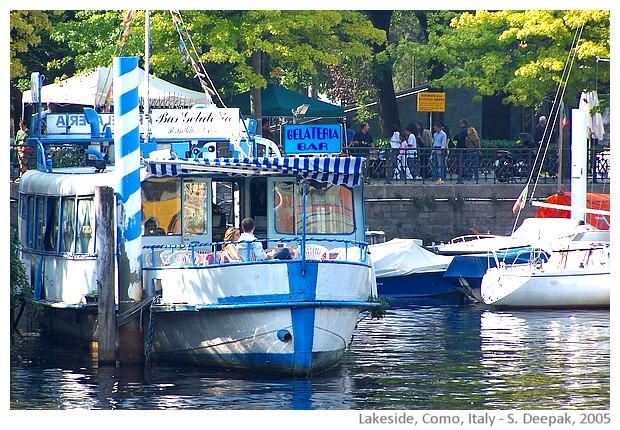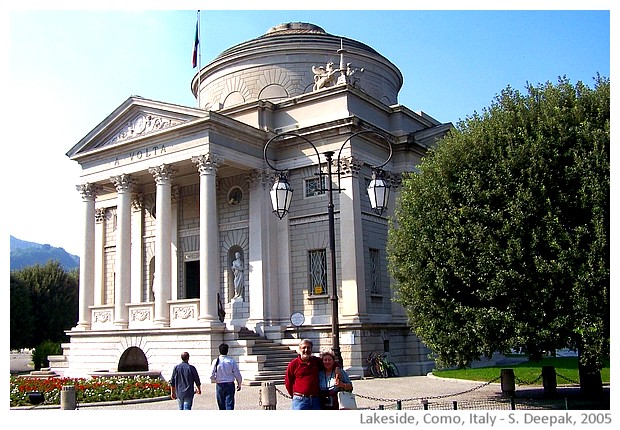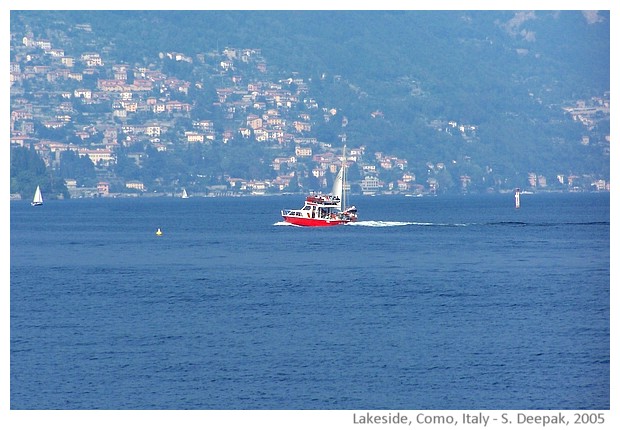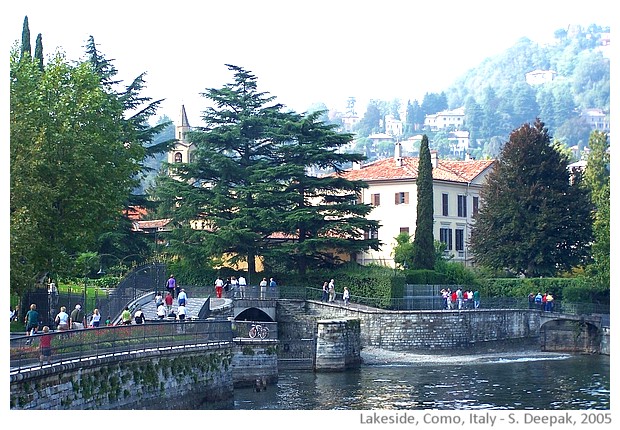GK II and Alaknanda are among the posh colonies of south Delhi. Every house has cars, some have guards outside and the houses are big and beautiful. There is an army of invisible persons, running around like ants, opening doors, collecting refuse, cleaning cars, taking out the dogs to walks, cooking dinners, selling vegetables, repairing all kinds of things, etc. that holds up this world of well to do. If you stay here long enough, you stop seeing them too. I am here only for 5 days and I see them all around, these invisible Indians, with hope in their eyes, an occasional envy and a rarer anger.
Do the poorer Indians accept much more easily and placidly, this living in close vicinity of the rich? Why? This is the question I have been asked in countries like Brazil and Kenya, where the rich need to be afraid when they venture out of their homes.
I have been to slums in many cities in India, including in Delhi and Mumbai, but I don't recall ever feeling afraid of being attacked or robbed at gun-point. OTH, going out to slums in Brazil or South Africa or Kenya is scary. A few years ago, I was coordinating a multi-country research project on persons with disabilities living in slum areas. I remember that persons working in slums of Manila, Jakarta and Mumbai, were really shocked during our visit to a slum in Salvadaor do Bahia in Brazil, we needed to move in a group and surrounded by persons from that slum community.
So probably, it is in Asia, where people are more accepting of inequalities while in Africa and Latin America, people react to inequalities with violence? Is it a cultural thing or because of our histories or because of religions? What do you think?
***
I was at the Bookworm in Connaught Place, when I saw her. She must have been fifty. Slim, her eyes lined with kajal, her greying hair in a single plait, a tatty worn out purse in her hands. She seemed to be speaking to me. I looked around, I didn't know her.
***
I was at the Bookworm in Connaught Place, when I saw her. She must have been fifty. Slim, her eyes lined with kajal, her greying hair in a single plait, a tatty worn out purse in her hands. She seemed to be speaking to me. I looked around, I didn't know her.
"Pagal hai saab", the boy at the bookshop told me.
"Buy me something", I think that is what she said, in English. "She is educated", the boy in the shop said. She started to dance, moving her hands gently, nodding at me, listening to the music coming from the shop next door.
I came out and she came forward, "Come on, buy me something. It is festival season, everybody is buying something, I also need to buy. I need some shoes. Look at these, these are completely worn out."
I was afraid of her and I hurried away.
"It is disgusting, every body can buy and I am left like this. No one to help me", she called after me.
While I walked away, I was talking to myself. Stupid. Why can't you help her? It is so little for you. Offer her an ice-cream, perhaps? I turned back, but she was gone.
***
I was in auto-rickshaw on Barakhamba road. The construction of a metro line is going ahead furiously and the traffic moves in bits and pieces, getting stuck after every few meters. At one such stop, she came to me. Light blue sari, middle aged. "Please help me buy medicines for my child." She held a paper in her hand. "I am not a beggar. I work here but I don't have enough money to buy medicines", she began to cry, "my child will die."
I gave her a ten rupee note. "It is not enough for buying medicines", she said,"I don't want money, help me buy the medicines for two days."
"That is all I have", I said, lying. 10 rupees is just 20 cents. May be I can ask her to come in autorickshaw and go to a chemist shop, I thought. The traffic started moving and the auto moved. Her face streaked with tears looked at me, as I left her behind.
"Buy me something", I think that is what she said, in English. "She is educated", the boy in the shop said. She started to dance, moving her hands gently, nodding at me, listening to the music coming from the shop next door.
I came out and she came forward, "Come on, buy me something. It is festival season, everybody is buying something, I also need to buy. I need some shoes. Look at these, these are completely worn out."
I was afraid of her and I hurried away.
"It is disgusting, every body can buy and I am left like this. No one to help me", she called after me.
While I walked away, I was talking to myself. Stupid. Why can't you help her? It is so little for you. Offer her an ice-cream, perhaps? I turned back, but she was gone.
***
I was in auto-rickshaw on Barakhamba road. The construction of a metro line is going ahead furiously and the traffic moves in bits and pieces, getting stuck after every few meters. At one such stop, she came to me. Light blue sari, middle aged. "Please help me buy medicines for my child." She held a paper in her hand. "I am not a beggar. I work here but I don't have enough money to buy medicines", she began to cry, "my child will die."
I gave her a ten rupee note. "It is not enough for buying medicines", she said,"I don't want money, help me buy the medicines for two days."
"That is all I have", I said, lying. 10 rupees is just 20 cents. May be I can ask her to come in autorickshaw and go to a chemist shop, I thought. The traffic started moving and the auto moved. Her face streaked with tears looked at me, as I left her behind.
It was my fear of being called a stupid.
When people ask for help, how do you find out if they are genuinely needful or they are conning you? Play-acting that you are in great need to con people is the worst thing anyone can do, because it means that when someone is in real distress, people do not believe them.

.JPG)
.jpg)
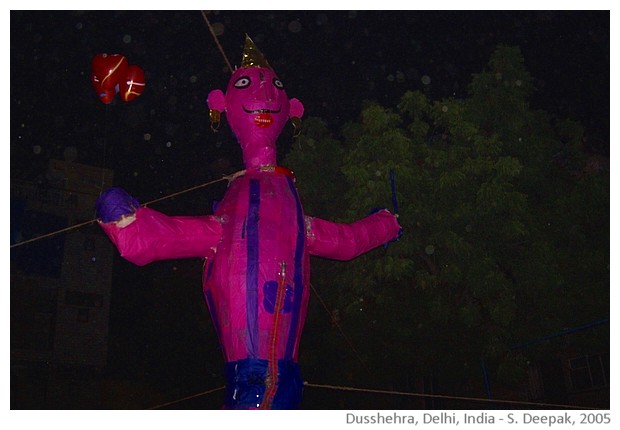
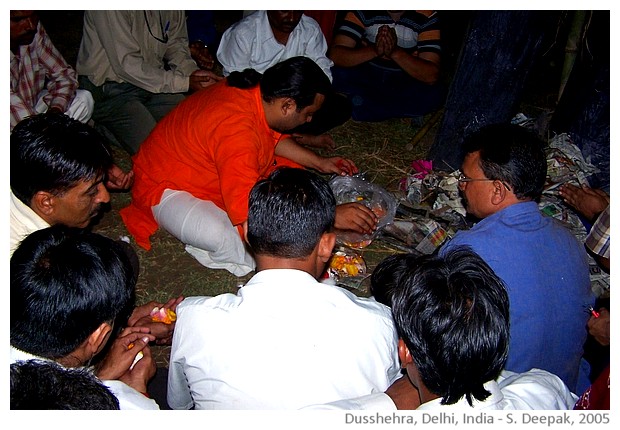
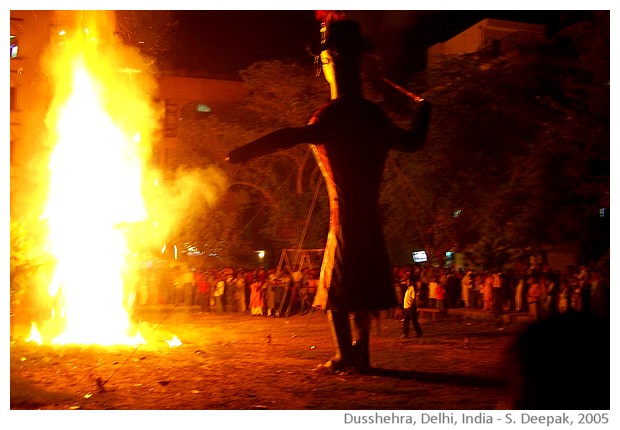
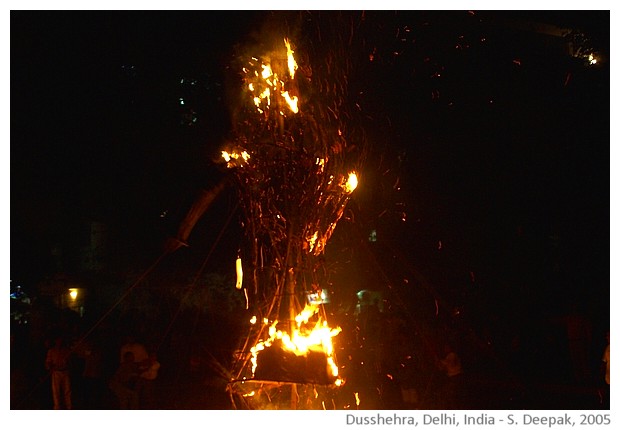
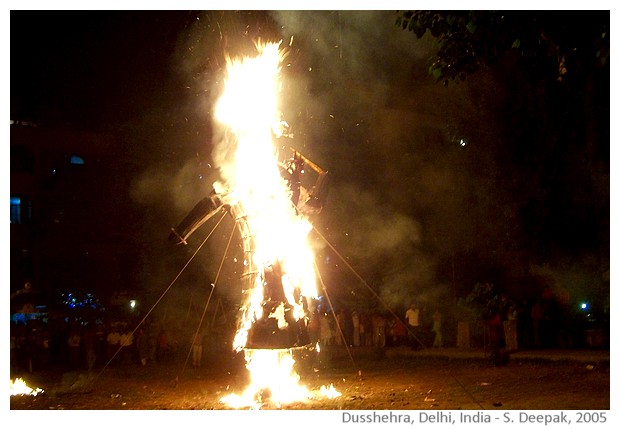
.jpg)
.JPG)

.jpg)
.jpg)
